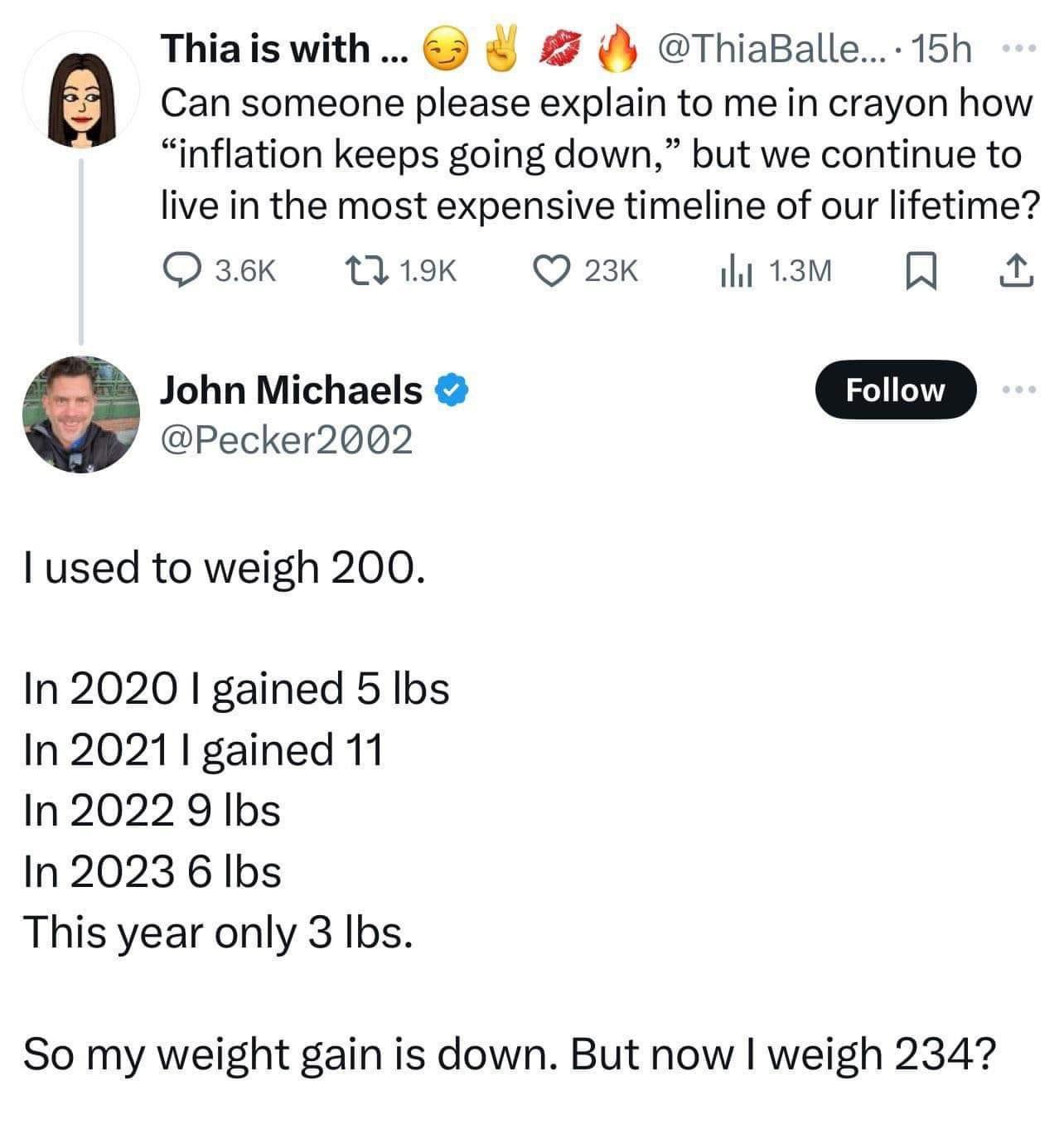this post was submitted on 20 Aug 2024
1130 points (98.6% liked)
People Twitter
4972 readers
1060 users here now
People tweeting stuff. We allow tweets from anyone.
RULES:
- Mark NSFW content.
- No doxxing people.
- Must be a tweet or similar
- No bullying.
- Be excellent to each other.
founded 1 year ago
MODERATORS
you are viewing a single comment's thread
view the rest of the comments
view the rest of the comments

It's specially a problem in the US, and other selected third world countries, where they don't have yearly minimum wage increases to offset inflation. I live in Brazil, and I get a raise that is always higher to the yearly inflation (thanks for my union), so yes, things are higher as ever, but my salary too.
Annual adjustment or annual + step increment?
Long term the annual adjustment will usually track inflation or be pretty close to it but until you've reached your last step you get two wage increases a year so it feels like you're beating inflation...
Sorry, don't understand the difference. In Brazil the raise is usually signed in March, but retroactive to the beginning of the year. Is negotiated on base of the past year inflation, so technically we're always behind, because we get the rise at begging of year, but inflation is a constant process. There's something I find bullshit and is that the raise is rated by the time you worked on the past year, so if you start working in July, you only get 50% of the negotiated raise. Not sure if it general or something stupid in my union contract.
I think what they meant is if you receive that raise capped or uncapped. Some places have set wage increases based on years worked until a certain ceiling.
So if you have this annual increase and that capped increase at the same time, you might only beat it because of the additional capped increase. That would mean, at some point, your increase in wages will not catch up with inflation anymore